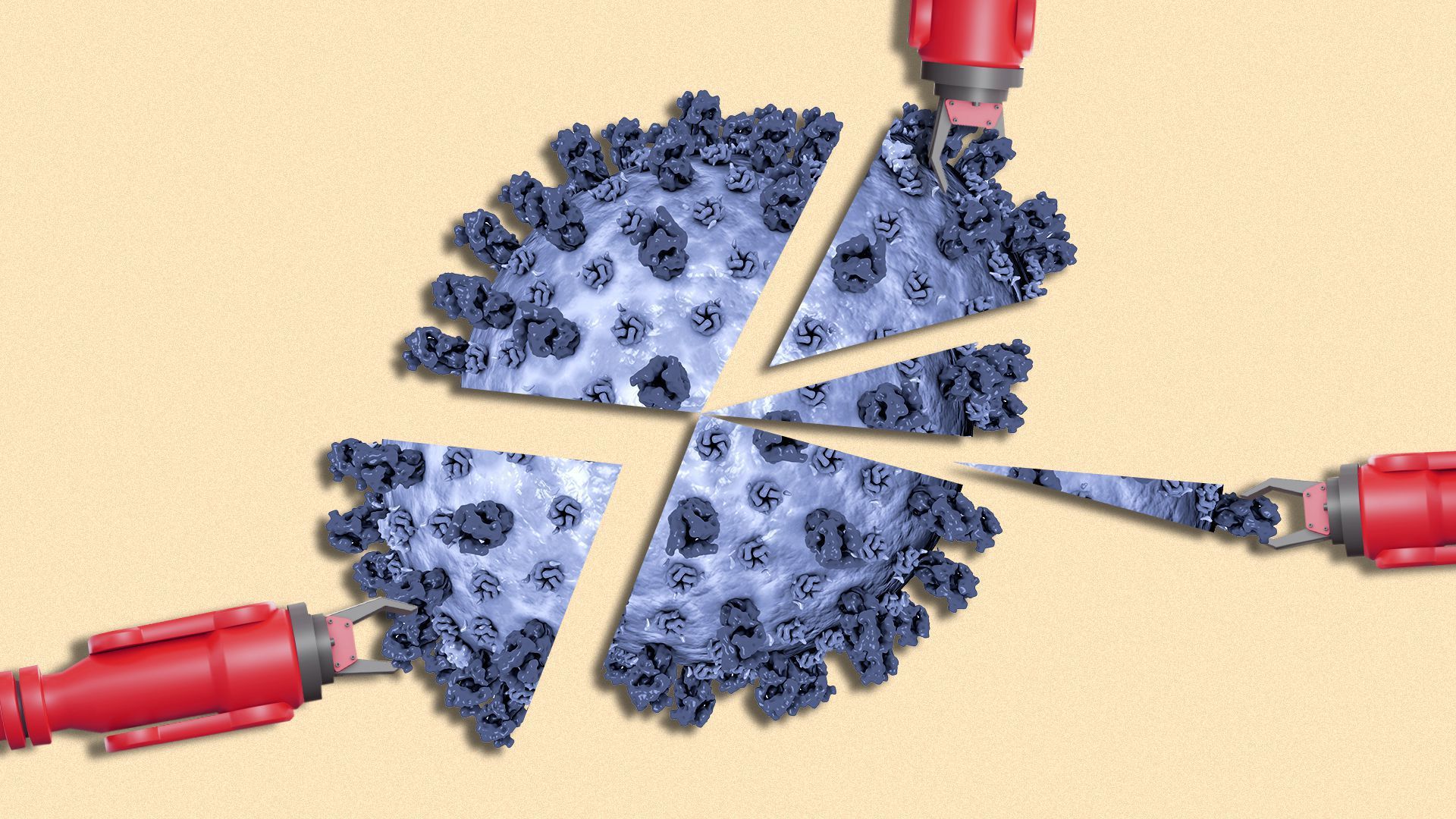Detecting and defending against man-made pathogens
Add Axios as your preferred source to
see more of our stories on Google.

Illustration: Annelise Capossela/Axios
A bipartisan commission is recommending an "Apollo Program" to enhance U.S. biodefense — including against engineered viruses.
Why it matters: COVID-19, which will cost millions of lives and trillions of dollars, shuts the door on any argument that new diseases aren't a major global threat. But as biotechnology improves, we especially need ways to detect and deter pathogens designed by human beings, not just by nature.
Driving the news: On Tuesday, the Bipartisan Commission on Biodefense released a set of recommendations outlining how the U.S. could end pandemic threats — both natural and man-made — by 2030.
- The commission — which is co-chaired by former Sen. Joe Lieberman and former Homeland Security Secretary Tom Ridge — argues for spending up to $10 billion a year to speed up vaccine prototypes, enhance genomic sequencing capabilities, and create a national public health data system, among other recommendations.
Details: The report's conclusions are solid, and they're bolstered by the fact that the commission made much the same argument in 2015, years before COVID-19. But I was particularly interested to see the attention paid to the threat of man-made pathogens.
- The report noted that "advances in biotechnology have also made it easier to obtain or modify these pathogens, creating the possibility of pandemics emerging from deliberate attacks or laboratory accidents."
- The commission focused on the need to develop techniques to "distinguish natural and engineered DNA and to inform attribution" of any new pathogens.
What's next: In a recent competition, hundreds of teams around the world developed algorithms designed to predict the origin of genetically engineered DNA sequences.
- The best teams were able to predict the source lab of an unfamiliar engineered DNA sequence over 95% of the time, an improvement over the top previous results.
- Such algorithms can be useful for regulating genetic engineering by ensuring that any edited sequences can be tied back to their point of origin.
- But none of the algorithms would be able to determine for sure whether an unknown DNA sequence was natural or engineered, notes Lane Warmbrod, a senior analyst at the Johns Hopkins Center for Health Security.
The bottom line: We can't stumble blindly into a world where DNA can be engineered like computer code.
